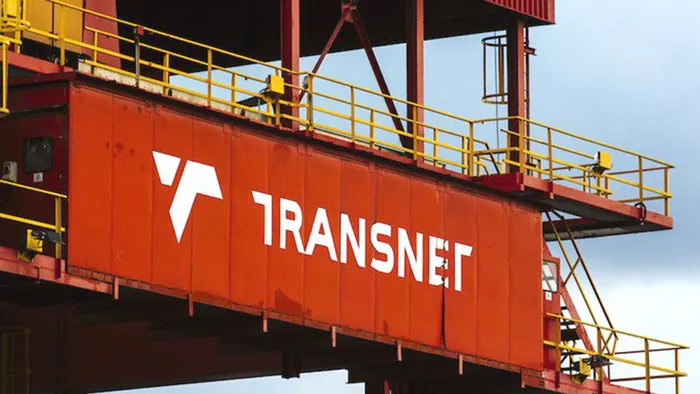
Although Transnet has not yet met its own targets, the Medium- Term Budget Policy Statement (MTBPS) notes that progress has been made.
Image: File
Although Transnet has not yet met its own targets, the Medium- Term Budget Policy Statement (MTBPS) notes that progress has been made. In particular, the Treasury said that Transnet's freight rail volumes increased in 2024/25 and port volumes have stabilised.
“Reforms in freight logistics focus on upgrading poorly maintained infrastructure and introducing private-sector participation in rail and ports. A rail infrastructure manager was established as a separate division of Transnet in April 2025 and has opened slots on the freight rail network to 11 private rail companies,” the MTBPS said.
Transnet is addressing a financial and operational decline as rail volumes have declined from 226.3 million tonnes in 2017/18 to 151.7 million tonnes in 2023/24 due to derailments, inefficiency and infrastructure damage. In 2023/24, Transnet reported a net loss of R7.3 billion, relative to R5.1bn in 2022/23, largely due to increased finance costs.
Additional debt and higher interest rates pushed finance costs to R14.3bn in 2023/24, placing further strain on cash flows.
Transnet needs to stabilise and reduce its debt. Since 2018, Transnet has shifted funds from capital expenditure to debt servicing. While this prevented default, the shift has come at the expense of maintaining and expanding critical infrastructure. Government provided a R47bn guarantee in December 2023, which Transnet used to refinance maturing debt and take on new debt.
In 2025/26, government issued R145.8bn in additional guarantees to Transnet to address funding shortfalls, liquidity pressures and debt redemptions over the next five years, bringing total guarantees issued to the entity to R196.3bn.
The government is now providing direct support to critical infrastructure projects, such as the expansion of the land‐side container terminal in Cape Town, while avoiding debt relief or general balance sheet support and the Treasury said no further bailouts are anticipated.
However, it is likely to take several years before Transnet can access capital markets without a government guarantee.
Statistics South Africa reported that rail transport payload declined by 12.0% in 2022 after a 6.9% fall in 2021 and a 11.1% drop in 2020, while road transport surged by 25.0% in 2022 after growing by 10.4% in 2021. This meant that the percentage transported by rail fell to 15.6% of total land transport payload in 2022 from 20.6% in 2021 and 23.5% in 2020. Transnet’s strategic plan was to have a 30% share of land transport. In 2024, the rail share of total payload rose to 16.9% from 15.7% in 2023 and in the first eight months of 2025 there has been a 3.7% year-on-year (y/y) improvement to 110.6 million tonnes.
Although Transnet can access capital markets, its ability to raise more funding is constrained by accumulated debt levels. These in turn have led to unsustainable interest costs and refinancing risk, resulting in liquidity pressures.
Optimising the entity’s capital structure and returning it to profitability will require Transnet to shed non-core assets, reduce its current cost structure and explore alternative funding models for infrastructure and maintenance, such as project finance, third-party access, concessions and joint ventures.
To effect the roadmap, Transnet is working with the National Logistics Crisis Committee, composed of government departments, rail and port users, and independent experts. Two priority infrastructure projects involving Transnet assets were the Ukuvuselela Gauteng- Eastern Cape High-Capacity Rail Corridor, which would upgrade the South Corridor railway line and expand port infrastructure for automotive handling, with the construction phase of the project yielding an estimated 10 000 short-term jobs, as well as the Cape Town Container Terminal Expansion Phase 2B to expand landside capacity at the terminal.
BUSINESS REPORT